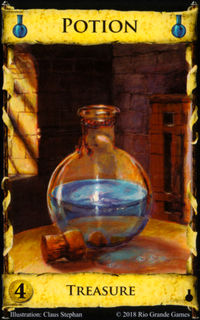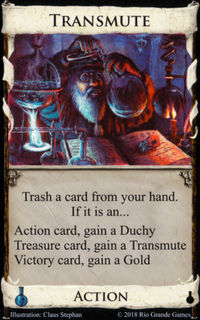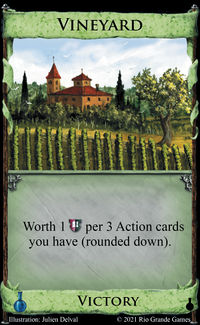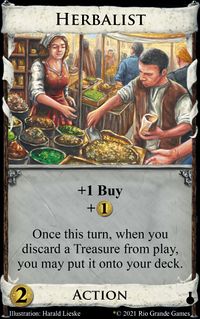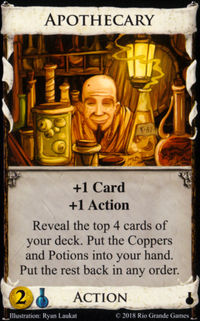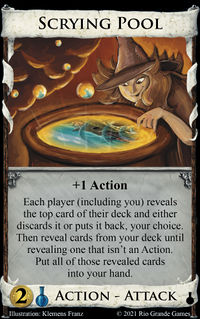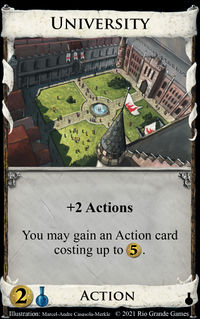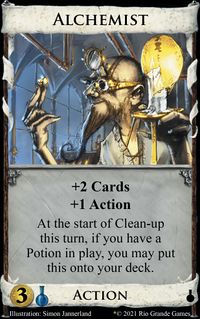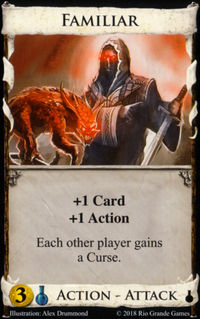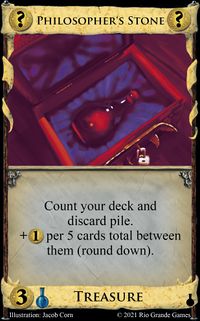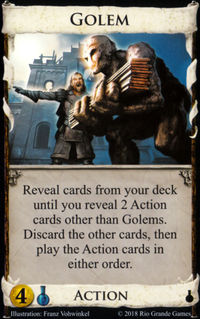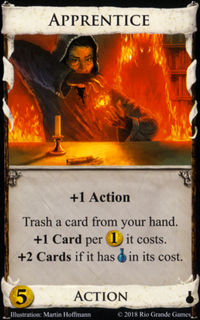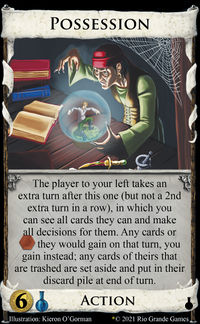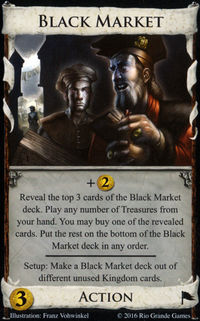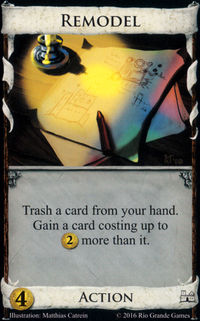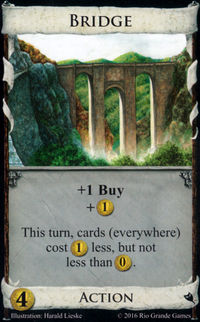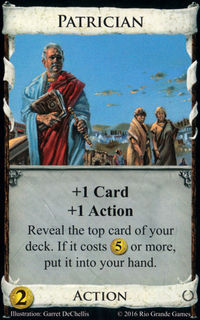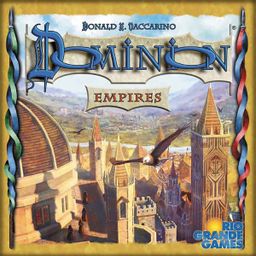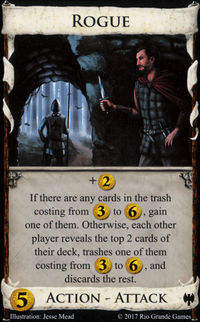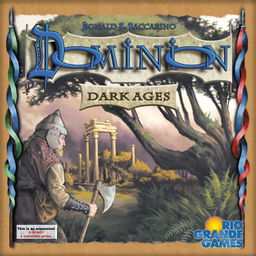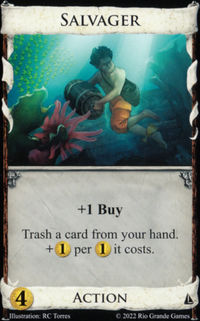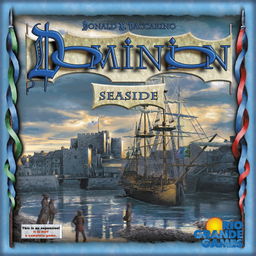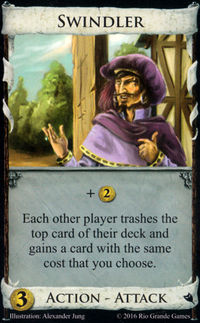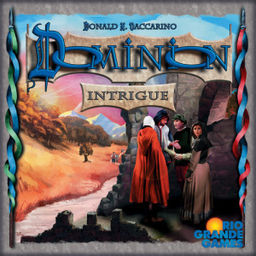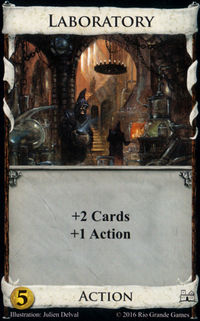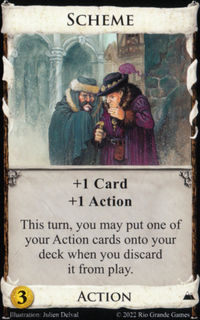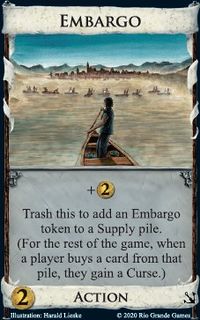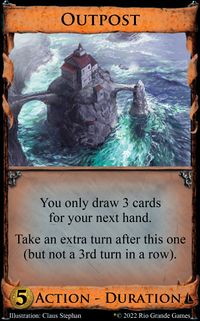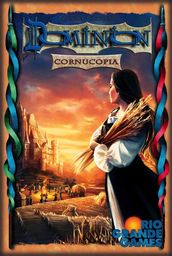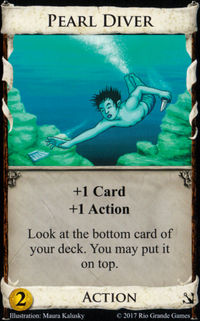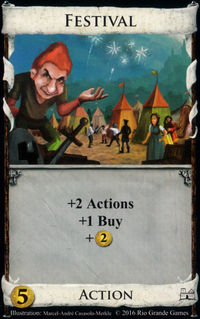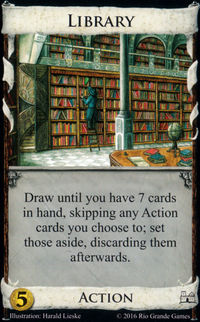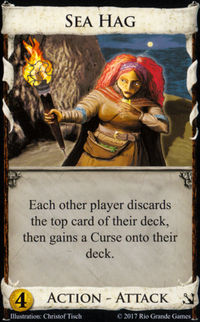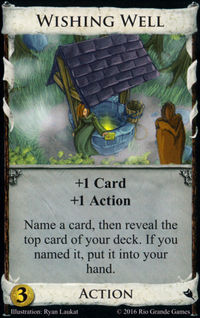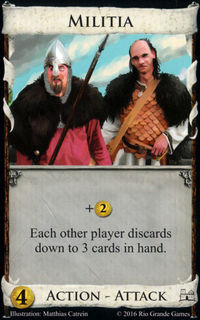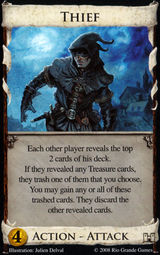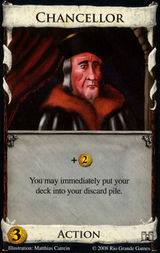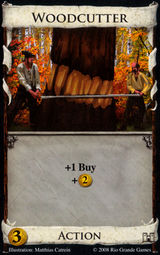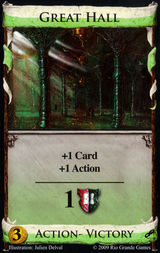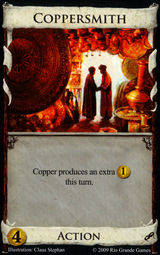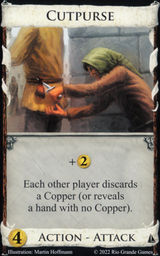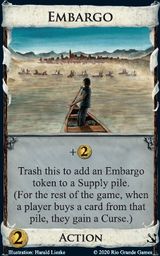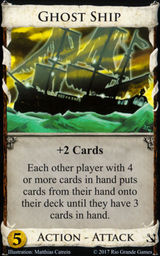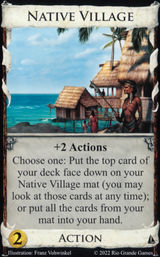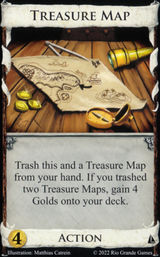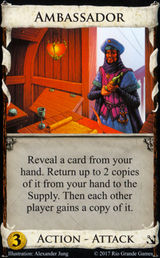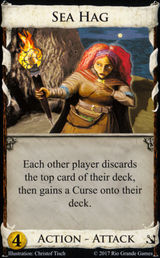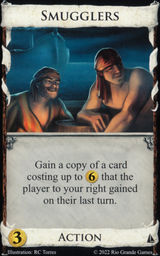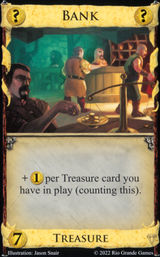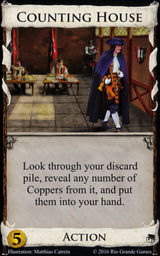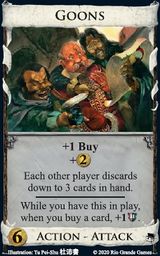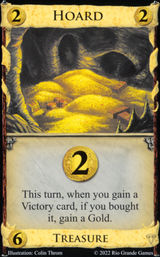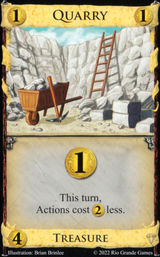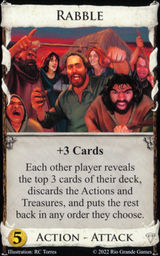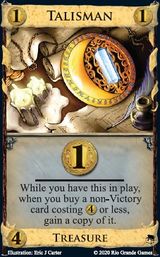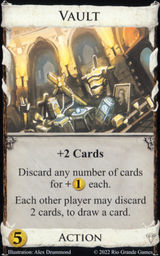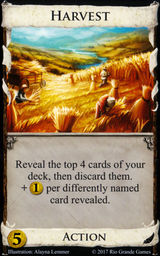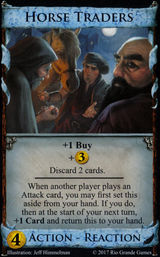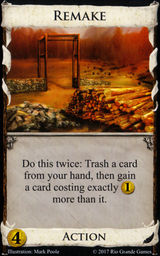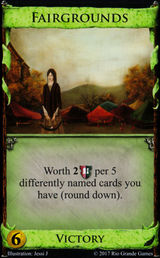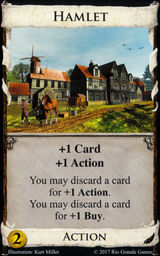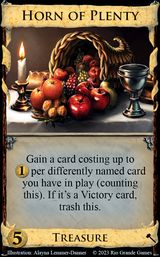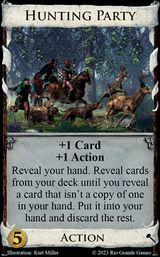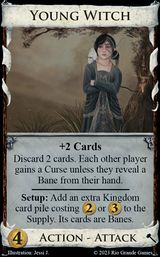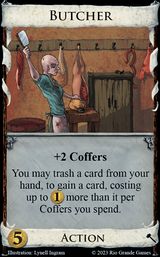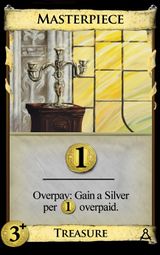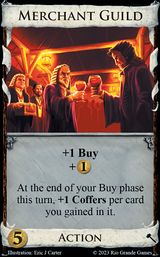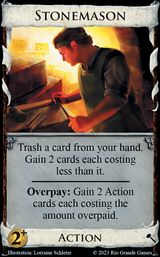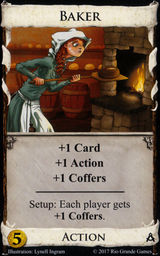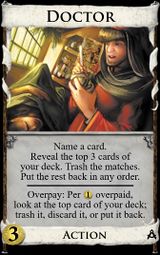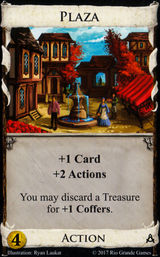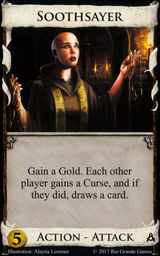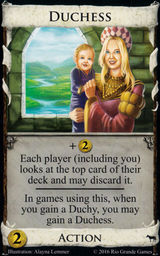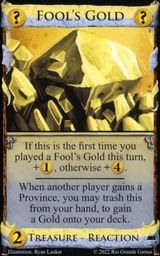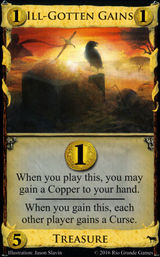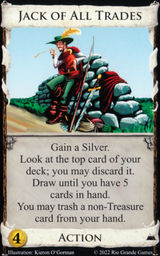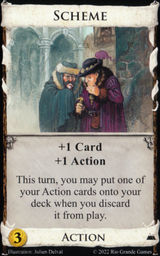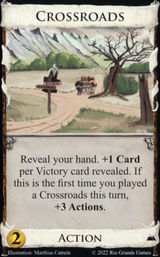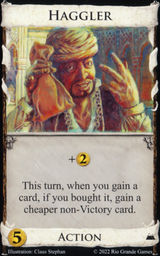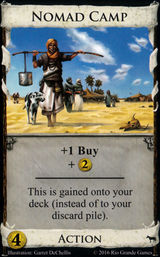Alchemy: Difference between revisions
Wikiwikiwiki (talk | contribs) No edit summary |
Wikiwikiwiki (talk | contribs) No edit summary |
||
| Line 69: | Line 69: | ||
=== Basic cards === | === Basic cards === | ||
{{Image|Potion|cost=$4}} | {{Image|Potion|cost=$4}} | ||
=== Kingdom cards ==={{startsort|1}}{{Image|Alchemist|cost=$3P}}{{Image|Apothecary|cost=$2P}}{{Image|Apprentice|cost=$5}}{{Image|Familiar|cost=$3P}}{{Image|Golem|cost=$4P}}{{Image|Herbalist|cost=$2}}{{Image|Philosopher's Stone|link=Philosopher's Stone|file=Philosopher's_Stone|cost=$3P}}{{Image|Possession|cost=$6P}}{{Image|Scrying Pool|link=Scrying Pool|file=Scrying_Pool|cost=$2P}}{{Image|Transmute|cost=$0P}}{{Image|University|cost=$2P}}{{Image|Vineyard|cost=$0P}}{{endsort}} | === Kingdom cards === | ||
{{startsort|1}}{{Image|Alchemist|cost=$3P}}{{Image|Apothecary|cost=$2P}}{{Image|Apprentice|cost=$5}}{{Image|Familiar|cost=$3P}}{{Image|Golem|cost=$4P}}{{Image|Herbalist|cost=$2}}{{Image|Philosopher's Stone|link=Philosopher's Stone|file=Philosopher's_Stone|cost=$3P}}{{Image|Possession|cost=$6P}}{{Image|Scrying Pool|link=Scrying Pool|file=Scrying_Pool|cost=$2P}}{{Image|Transmute|cost=$0P}}{{Image|University|cost=$2P}}{{Image|Vineyard|cost=$0P}}{{endsort}} | |||
Revision as of 06:27, 13 September 2024
| Alchemy | |
|---|---|
 | |
| Info | |
| Type | Small Expansion |
| Icon |
|
| Cards | 150 |
|
122 (12 sets) | |
|
16 | |
|
12 | |
| Theme(s) | |
| Release | May 2010 |
| Cover artist | Claus Stefan |
| Official Rulebook | |
Alchemy is the third expansion to Base Dominion by Donald X. Vaccarino, released in 2010 by publisher Rio Grande Games. The box contains 12 sets of Kingdom cards, and 1 basic card. The main themes of the set are Potions and Actions, featuring the only cards in the game with in their cost, and many cards encouraging decks filled with Action cards.
Contents
Basic Supply cards
- : Potion
Kingdom cards
- : Transmute, Vineyard
- : Herbalist
- : Apothecary, Scrying Pool, University
- : Alchemist, Familiar, Philosopher's Stone
- : Golem
- : Apprentice
- : Possession
Additional rules
Preparation
- After you choose 10 Kingdom cards for the Supply, if any of them have in the cost, add the Potion pile to the Supply. Also add the Potion pile if you are using the promotional card Black Market, and the Black Market deck includes at least one card with in the cost. If you don't have any cards with in the cost in the Supply or in the Black Market deck, do not use the Potion pile in this game.
- When you have a Potion pile, put all 16 Potions in it, no matter how many players there are. In games using this pile, if the pile becomes empty, that will count towards the game ending condition, like any other Supply pile.
Potion
- Potion is a new Basic Treasure card. It costs , and when played produces rather than . is a new resource, with no equivalent in . You get a single per Potion played.
- To buy a card with in the cost, you need . For example to buy an Alchemist, which costs , you need both and . You could play a Gold and a Potion, then buy Alchemist with the and they produced. To buy two Alchemists in one turn, you need and two (and a +Buy). As with , any unspent is lost at end of turn (but you will still have the Potion itself to replay for on future turns).
- Some cards refer to how much a card costs. Adding to a cost gives you a higher cost; is more than . More specifically:
- References to cards costing “up to” some cost only include if is in the given cost. If is in the cost, you can drop the and that is still "up to", but you cannot add if it is not there.
- Example: University gains an Action card costing up to ; it cannot gain a card with in the cost. However if you use Remodel to trash a card costing , you gain a card costing up to , which could be a card costing , , , , and on down to .
- Adding coins to a cost does not affect being in the cost or not. If was in the cost, it still is; if it was not, it still is not. Same with subtracting coins from a cost.
- Example: Remodel allows you to gain a card costing up to more than the trashed card. Trashing a card that costs would not let you gain a card costing using Remodel. Bridge makes cards cost less this turn. This lowers the cost of a card costing to . It does nothing to the cost of a card costing just .
- References to cards costing some number of “or more” include cards with or without in the cost.
- Example: Patrician (from Dominion: Empires) checks to see if a card costs or more. Apothecary costs and so does not, since it doesn't have at least in its cost, but Possession costs and so does cost or more.
- References to a cost range in does not include cards with in the cost.
- Example: Rogue (from Dominion: Dark Ages) can trash a card costing from to . That means cards costing exactly , , , or . None of those have in the cost.
- Cards which look at the cost of a card in do not do anything with .
- Example: Salvager (from Dominion: Seaside) trashes a card, and produces + per the card cost. If you trash a card costing , you will just get +.
- Cards which check if two costs are the same include if it is there.
- Example: Swindler (from Dominion: Intrigue) trashes a card, and has the player who lost it gain a card with the same cost. If Swindler trashes a card costing , that player will gain another card costing exactly .
- References to cards costing “up to” some cost only include if is in the given cost. If is in the cost, you can drop the and that is still "up to", but you cannot add if it is not there.
Flavor text
Mechanics
Cards gallery
Basic cards
Kingdom cards
Impact
Due to the Actions theme of this set, most of these cards are excellent for engines. That said, the awkwardness of the Potion cost can discourage some players from pursuing strategies with Alchemy cards. Because of this awkwardness, players often choose Alchemy as their least favorite expansion, and Donald X. has stated that it's highly unlikely he'll revisit Potions as a mechanic, mainly for this very reason. However, the set does have supporters, and once actually in your deck, most of the cards are quite powerful and fun to play with.
Theme
Game designer Donald X. offered some insight into some themes of the set here.
- 12 Potion-related: Apprentice cares if it's in the cost and Herbalist can put a Potion on your deck for reuse, so, the whole set.
- 5 Actions theme: Transmute, Vineyard, Scrying Pool, University, Golem
- 10 useful in multiples: Everything but Herbalist and Possession
Engines
- Vineyard - Not an engine part, but greatly rewards engine players, as engine decks tend to consist of mostly Actions
- Apothecary - Clears out Coppers and Potions from the top of your deck, making your engine more efficient
- Scrying Pool - The ultimate engine card, one of these can draw your entire deck in the right circumstances
- University - Good for quickly gaining engine pieces, though it becomes much less useful in the endgame, barring Vineyards
- Alchemist - A Laboratory that can be Schemed every turn - an engine unto itself
- Familiar - A cantrip curser
- Golem - Seeks out Actions to play in your deck
- Apprentice - An excellent trasher; trashing and non-terminal card draw are always good for an engine
Potion
The addition of the Potion cost has notable effects:
- Slightly longer games if all players go for Potion-based strategies
- Potion strategies can be easily thwarted by trashing attacks or Embargo - if your Potion is trashed, or the Potion-cost card is Embargoed, you may have to change your strategy
- Interesting interactions with cost-caring cards
Possession
Possession is (if you take to be worth a little more than ) the most expensive Action card in the game, and the card with the longest FAQ to date. It gives an extra turn like Outpost, but the only limitation on the number of turns you get is how many times you can play Possession, rather than the artificial cap Outpost has. It features often in combos, and is one of the more hated cards in the game, mostly due to the fact that it allows another player to use your deck.
Trivia
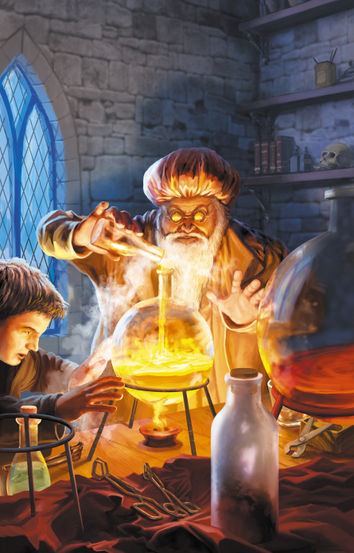
Alchemy introduced the smallest number of different Kingdom cards of any set, containing only 12. It is also the smallest set to introduce a Basic card.
In other languages
- Chinese: 煉金術士 (pron. liànjīn shùshì, lit. alchemist)
- Czech: Alchymie
- Dutch: De Alchemisten (lit. the alchemists)
- No longer available. In 2019 999 games combined it with Cornucopia in a larger box (https://www.999games.nl/dominion-alchemisten-overloed-mix-box.html)
- Finnish: Alkemia
- French: Alchimie
- German: Die Alchemisten (lit. the alchemists), Alchemisten
- Italian: Alchimia
- Japanese: 錬金術 (pron. renkinjutsu)
- Russian: Алхимия (pron. alkhimiya)
- Spanish: Alquimia
Secret History
Then I made some other games. My friends just wanted to play Dominion though. Okay; I could make some more expansions. I made a 3rd, then a 4th, then a 5th. That's where things stood when I showed the game to Jay at Origins. During development of the main set I made some more cards, and reconfigured everything I had into 8 smaller sets. Then I rereconfigured them into 6 large sets. The original 2nd set ended up as two full sets (it had two themes and I split them up). The original 5th set ended up 6th.
After we finished working on Seaside, we moved on to the 3rd set. We finished that up, or so we thought, and were soon to begin work on the 4th set.
Meanwhile, people were clamoring for smaller sets. And when I say people I don't mean players, although maybe they were too; I mean, some of the publishers of the game wanted smaller sets. They talked to Jay and Jay talked to me; maybe we should do some small sets here too. Not that we wouldn't keep doing the large ones. But you know. Give the people something that's not the full price of the main game. And the ideal timing would be, next. It would squeeze ahead of the now-misnumbered 3rd expansion.
Since we had just finished the set that was due, shortly before it was due, there wasn't much time. In order to have something that was as polished as possible, as soon as possible, it had to be a subset of one of the existing large sets. Only the 6th set leant itself to this. It had a theme that was just the right size and could stand by itself, and a sub-theme that could be expanded for another small set. And the set was missing some cards, due to stealing them for earlier sets, so it didn't feel like I was breaking up something finished.
So I broke up the 6th set. The Potions part went into this set, Alchemy. I did actually get some advance warning, and started working on it before Essen; then at Essen we worked out that it was in fact going to happen, and that I could have it ready about when they wanted it, although not quite that fast. I demanded an extra month, and then when the time came I got 10 more days, although that last stretch was just spent working on the rulebook and deciding which Herbalist to use.
In its original 5th-set form, Alchemy was 20 cards (7 with potion in the cost). It went down to 16 when everything did, and up to 25 (but unfinished) when I went to 6 sets. When I broke it up, at first it was 10 cards plus Potion, but the number of printed cards was going to be 100 or 150, so it went up to 12 cards plus Potion, since going up was way better than going down.
Two cards in the set do not have Potion in the cost (besides Potion itself). In games using lots of cards from Alchemy, you will not always have a card at any particular cost. The most important cost is . So the set has a . Then it has a because it's nice to have one of those. At and you have Silver and Potion, and if there are a lot of Alchemy cards then people will be pulled in that direction anyway (though obviously sometimes some other start will be better).
"Has a potion in its cost" is not actually a huge connection functionally, so I supplemented the main theme with a "cares about actions" sub-theme.
When I came up with Dominion, I figured it would have multiple resources. When I actually made it, I went with one resource, because it was simpler. I could always add another resource in an expansion. With Alchemy I finally got around to doing that. Originally I was thinking it would be Reagents or Mandrake or something. I didn't find a good enough picture to use for such a card, so I went with Potions. That's how these decisions get made.
The second copy of Dominion was Kelly Bailey's (cheepicus on these forums). He renamed some of the cards, redid all the graphics, changed a few cards, and added some of his own. He took most of the cards from all of the expansions I had, but did not take the cards with Potion in the cost from Alchemy. He figured, he was shuffling everything together, and some games he would just turn over one card with Potion in the cost. Do you buy Potion just to get that one card? He thought not.
So I always knew this was an issue. The cards had to be worth buying multiple copies of. They had to be compelling. With just one out, you had to still consider buying Potion to get it. So that's why the set has so many +1 action cards, and then a victory card and a treasure; it's all stuff you want as much of as you can get.
And what, if you want you can just guarantee that you always have a few of them at once - say, once you've dealt out 8 cards from your randomizer deck, if you have any Alchemy cards, make sure the next two are also from Alchemy (by digging for them), and if you don't, make sure the next two also aren't Alchemy cards. Put the cards you skip over back on top of the randomizer deck. This way you see everything just as often as you would have (in the long run), but the Alchemy cards end up clumped together. Or if, like me, you don't manage to carry every expansion to the place you're playing, you can just specifically play with 3 cards from Alchemy on the nights that you bring it. Or whatever. There are lots of ways to manage this. I realize some BGG people are hung up on this point and well it's not hard. If you don't want to just see one card with potion in the cost out, and also want to see Alchemy cards as often as everything else, determined randomly, you can do it.
Now, some outtakes. There were several cards (including three Golems, and the other Herbalist) that didn't work out but which I may be able to rescue for a future set. So those will have to remain a mystery.
- There was an attack, "Gain a Gold, each other player gains a Curse." I liked how simple and compelling it was. It tended to be either too weak or too strong though, depending on how quickly you got it. I also didn't like having two cursing attacks in the set. In games with Alchemy, there were just always Curses. And they work against all of the chaining actions in the set.
- There was an attack that didn't work out, which I changed and put in another set, where it also failed to work out. I still have hope!
- There was a card that added 2 to numbers in another card's text. It was a wacky thing that was too scary rules-wise to let out. I was especially worried that it might do different things in different languages. I tried a couple versions of it, but it never really had a chance.
- There was a treasure that I stole for an earlier set which will now be a later set. That'll learn me.
- There was the Remodel that Transmute replaced.
- There was a card that turned anything into a Potion, or a Potion into anything for $6 or less. At some point I realized I couldn't have anything so dependent on Potion (without in its cost), since people just shuffling everything into one randomizer deck would turn over these cards with no Potion-costers.
- Similarly there was a card that let you discard a Potion card for an effect, or get a symbol to spend. What Potions produce. You know. And there was a Remodel that could add the potion symbol to a cost.
- There was a card that drew you cards equal to another card's cost, without trashing it. It had more to it than that, but still overlapped too much with Apprentice.
That leaves a residue of cards that I can't tell you about or that you already know about. There were a few cards that turned into cards I will tell you about in the Secret History of the next small set, which started out as the non-potion half of Alchemy but ended up much different. There were a few cards that aren't in sets but could still make it somewhere, so there's nothing much to say there. There were a couple cards that mutated into cards coming in other later sets. Then there are cards that are already out in other sets: Pearl Diver, Festival, Library, and Sea Hag all started in Alchemy; Bridge started in a later version of Alchemy, and Wishing Well was in Alchemy at some point; the "trash your hand" outtake from Seaside was in Alchemy, as were the card once called Militia that's not in the main set, and the Village with them discarding instead of you drawing that also isn't in the main set.
And that's that!Retrospective (2012)
Retrospective (2020)
Chances of an Alchemy sequel
Recommended sets of 10
Alchemy & Dominion
| Forbidden Arts [images] | ||||||||||||||
|---|---|---|---|---|---|---|---|---|---|---|---|---|---|---|
| Apprentice | Familiar | Possession | University | Bandit | ||||||||||
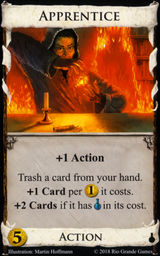
|
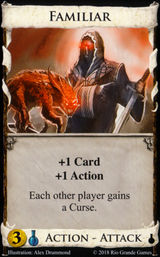
|
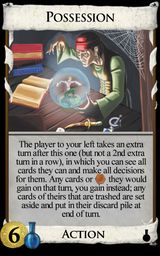
|
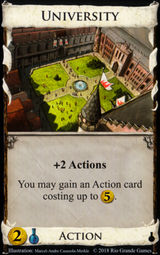
|
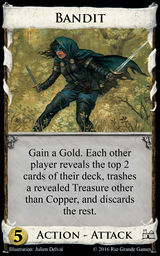
| ||||||||||
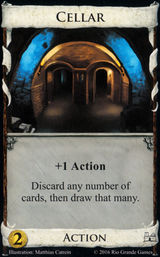
|
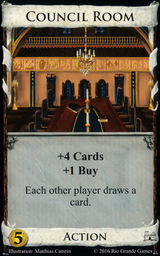
|
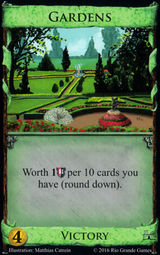
|
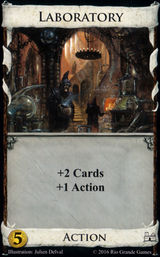
|
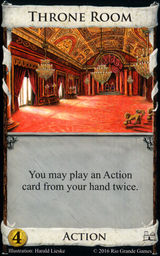
| ||||||||||
| Cellar | Council Room | Gardens | Laboratory | Throne Room | ||||||||||
| Landscapes and Additional Cards | ||||||||||||||
| Potion | ||||||||||||||
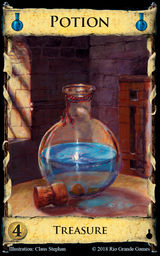
| ||||||||||||||
| Potion Mixers [images] | ||||||||||||||
|---|---|---|---|---|---|---|---|---|---|---|---|---|---|---|
| Alchemist | Apothecary | Golem | Herbalist | Transmute | ||||||||||
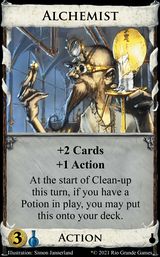
|
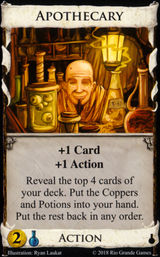
|
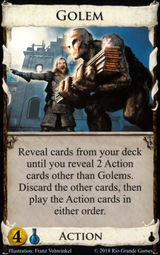
|
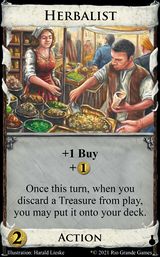
|
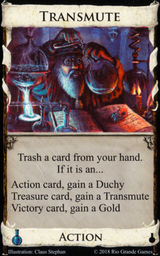
| ||||||||||

|
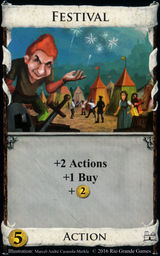
|
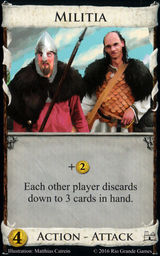
|
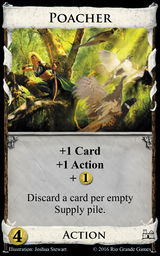
|
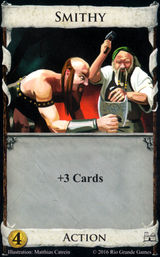
| ||||||||||
| Cellar | Festival | Militia | Poacher | Smithy | ||||||||||
| Landscapes and Additional Cards | ||||||||||||||
| Potion | ||||||||||||||

| ||||||||||||||
| Chemistry Lesson [images] | ||||||||||||||
|---|---|---|---|---|---|---|---|---|---|---|---|---|---|---|
| Alchemist | Golem | Philosopher's Stone | University | Bureaucrat | ||||||||||

|

|
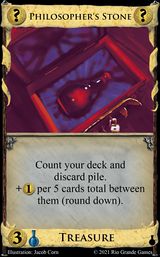
|

|
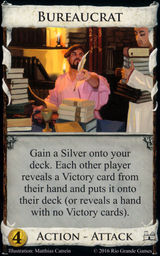
| ||||||||||
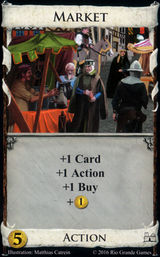
|
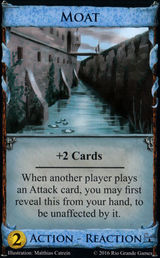
|
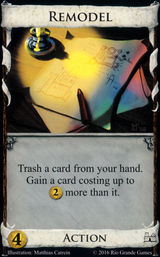
|
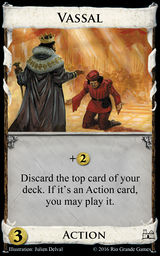
|
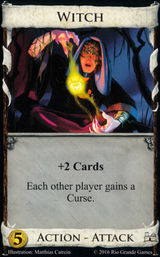
| ||||||||||
| Market | Moat | Remodel | Vassal | Witch | ||||||||||
| Landscapes and Additional Cards | ||||||||||||||
| Potion | ||||||||||||||

| ||||||||||||||
Alchemy & Intrigue
| Servants [images] | ||||||||||||||
|---|---|---|---|---|---|---|---|---|---|---|---|---|---|---|
| Golem | Possession | Scrying Pool | Transmute | Vineyard | ||||||||||

|

|
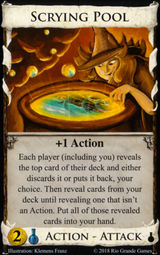
|

|
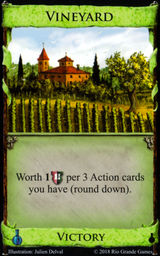
| ||||||||||
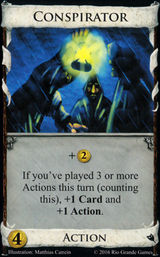
|
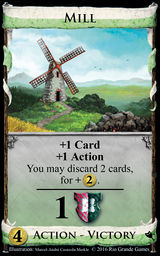
|
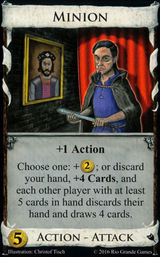
|
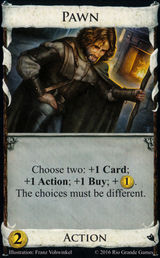
|
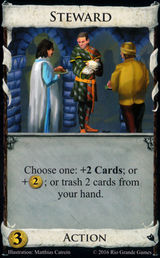
| ||||||||||
| Conspirator | Mill | Minion | Pawn | Steward | ||||||||||
| Landscapes and Additional Cards | ||||||||||||||
| Potion | ||||||||||||||

| ||||||||||||||
| Secret Research [images] | ||||||||||||||
|---|---|---|---|---|---|---|---|---|---|---|---|---|---|---|
| Familiar | Herbalist | Philosopher's Stone | University | Bridge | ||||||||||

|

|

|

|
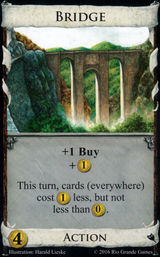
| ||||||||||
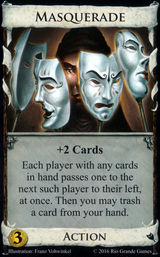
|

|
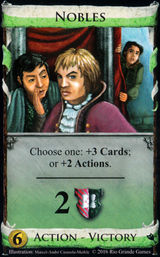
|
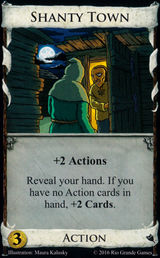
|
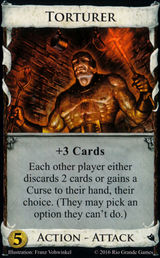
| ||||||||||
| Masquerade | Minion | Nobles | Shanty Town | Torturer | ||||||||||
| Landscapes and Additional Cards | ||||||||||||||
| Potion | ||||||||||||||

| ||||||||||||||
| Pools, Tools, and Fools [images] | ||||||||||||||
|---|---|---|---|---|---|---|---|---|---|---|---|---|---|---|
| Apothecary | Apprentice | Golem | Scrying Pool | Baron | ||||||||||

|

|

|

|
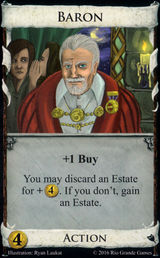
| ||||||||||
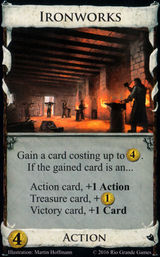
|
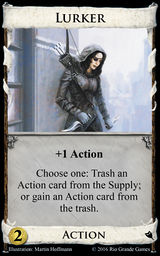
|

|
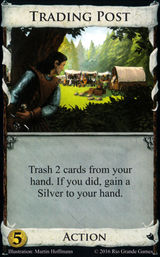
|
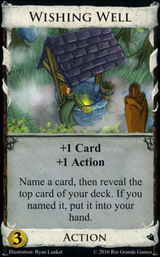
| ||||||||||
| Ironworks | Lurker | Nobles | Trading Post | Wishing Well | ||||||||||
| Landscapes and Additional Cards | ||||||||||||||
| Potion | ||||||||||||||

| ||||||||||||||
Alchemy & Seaside
| Gummed Up [images] | ||||||||||||||
|---|---|---|---|---|---|---|---|---|---|---|---|---|---|---|
| Apprentice | Familiar | Herbalist | Philosopher's Stone | Vineyard | ||||||||||

|

|

|

|

| ||||||||||
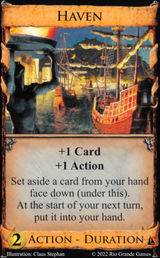
|
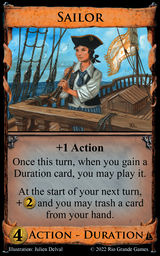
|
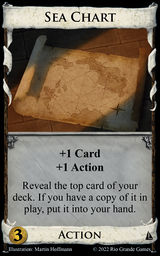
|
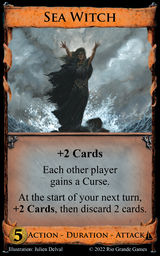
|
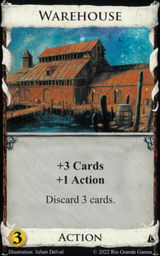
| ||||||||||
| Haven | Sailor | Sea Chart | Sea Witch | Warehouse | ||||||||||
| Landscapes and Additional Cards | ||||||||||||||
| Potion | ||||||||||||||

| ||||||||||||||
Alchemy & Prosperity
| Lower Learning [images] | ||||||||||||||
|---|---|---|---|---|---|---|---|---|---|---|---|---|---|---|
| Apprentice | Familiar | University | Vineyard | Anvil | ||||||||||

|

|

|

|
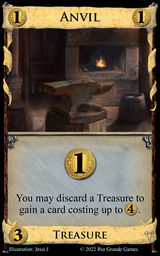
| ||||||||||
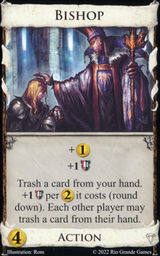
|
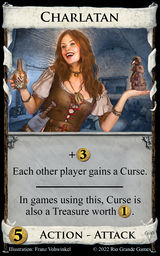
|
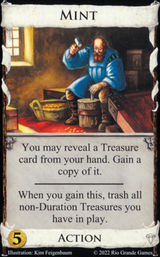
|
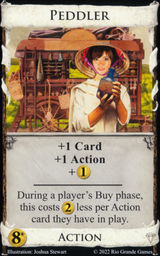
|
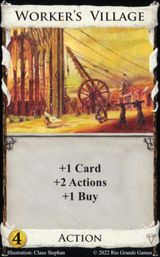
| ||||||||||
| Bishop | Charlatan | Mint | Peddler | Worker's Village | ||||||||||
| Landscapes and Additional Cards | ||||||||||||||
| Potion | Platinum | Colony | ||||||||||||

|
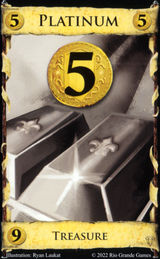
|
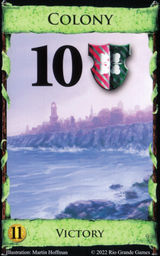
| ||||||||||||
Alchemy & Cornucopia & Guilds
| Clown College [images] | ||||||||||||||
|---|---|---|---|---|---|---|---|---|---|---|---|---|---|---|
| Apothecary | Familiar | Golem | University | Candlestick Maker | ||||||||||

|

|

|

|
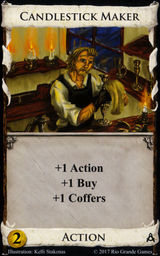
| ||||||||||
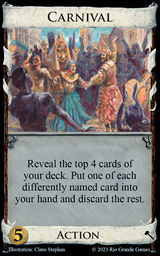
|
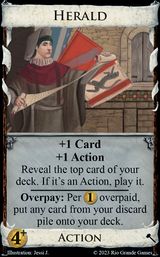
|
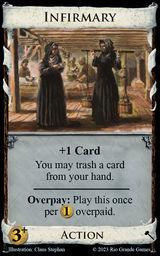
|
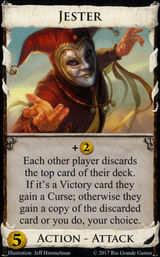
|
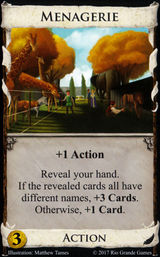
| ||||||||||
| Carnival | Herald | Infirmary | Jester | Menagerie | ||||||||||
| Landscapes and Additional Cards | ||||||||||||||
| Potion | ||||||||||||||

| ||||||||||||||
Alchemy & Hinterlands
| Wine Country [images] | ||||||||||||||
|---|---|---|---|---|---|---|---|---|---|---|---|---|---|---|
| Apprentice | Familiar | Golem | University | Vineyard | ||||||||||

|

|

|

|

| ||||||||||
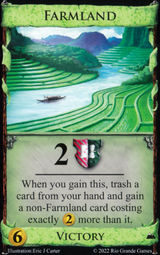
|
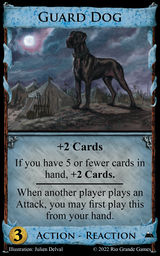
|
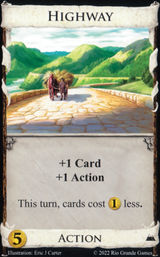
|
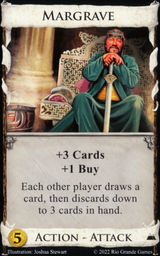
|
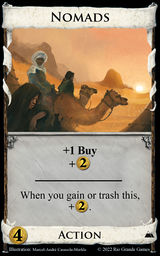
| ||||||||||
| Farmland | Guard Dog | Highway | Margrave | Nomads | ||||||||||
| Landscapes and Additional Cards | ||||||||||||||
| Potion | ||||||||||||||

| ||||||||||||||
Alchemy & Dark Ages
| Infestations [images] | |||||||||||||||||
|---|---|---|---|---|---|---|---|---|---|---|---|---|---|---|---|---|---|
| Apprentice | Scrying Pool | Transmute | Vineyard | Armory | |||||||||||||

|

|

|

|
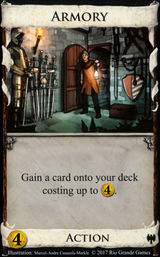
| |||||||||||||
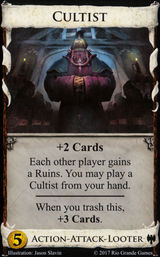
|
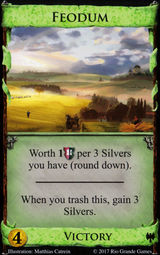
|
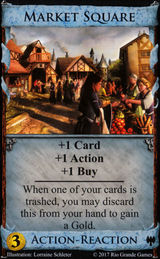
|
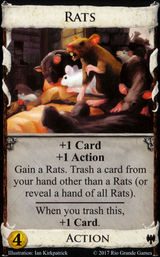
|
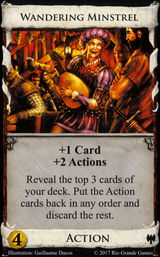
| |||||||||||||
| Cultist | Feodum | Market Square | Rats | Wandering Minstrel | |||||||||||||
| Landscapes and Additional Cards | |||||||||||||||||
| Potion | Ruins | Shelters | |||||||||||||||

|
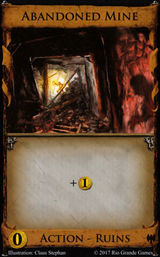
|
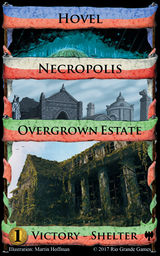
| |||||||||||||||
| Lamentations [images] | |||||||||||||||||
|---|---|---|---|---|---|---|---|---|---|---|---|---|---|---|---|---|---|
| Apothecary | Golem | Herbalist | University | Beggar | |||||||||||||

|

|

|

|
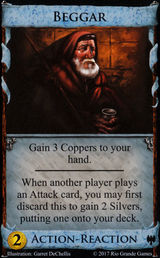
| |||||||||||||
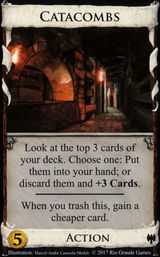
|
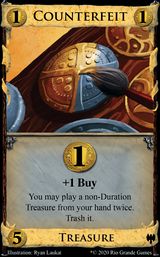
|
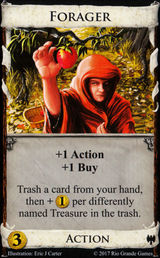
|
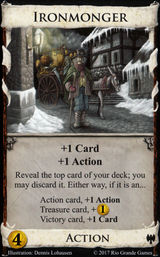
|
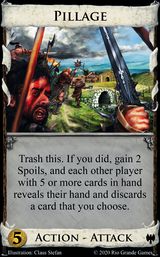
| |||||||||||||
| Catacombs | Counterfeit | Forager | Ironmonger | Pillage | |||||||||||||
| Landscapes and Additional Cards | |||||||||||||||||
| Potion | Shelters | ||||||||||||||||

|

| ||||||||||||||||
Alchemy & Adventures
| Haste Potion [images] | |||||||||||||||||
|---|---|---|---|---|---|---|---|---|---|---|---|---|---|---|---|---|---|
| Apprentice | Scrying Pool | Transmute | University | Vineyard | |||||||||||||

|

|

|

|

| |||||||||||||
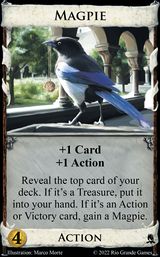
|
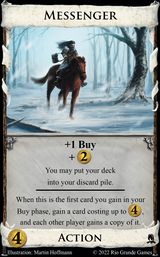
|
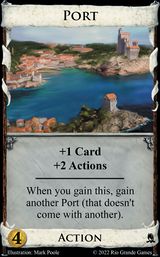
|
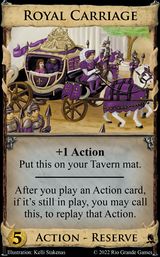
|
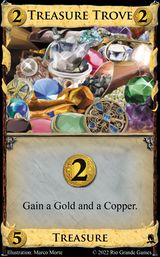
| |||||||||||||
| Magpie | Messenger | Port | Royal Carriage | Treasure Trove | |||||||||||||
| Landscapes and Additional Cards | |||||||||||||||||
| Potion | Plan | ||||||||||||||||

|
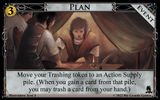
| ||||||||||||||||
| Cursecatchers [images] | ||||||||||||||||||||
|---|---|---|---|---|---|---|---|---|---|---|---|---|---|---|---|---|---|---|---|---|
| Apothecary | Familiar | Golem | Herbalist | Philosopher's Stone | ||||||||||||||||

|

|

|

|

| ||||||||||||||||
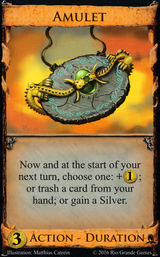
|
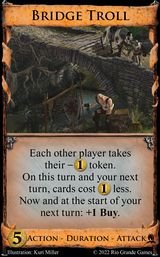
|
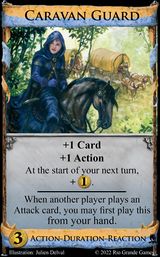
|
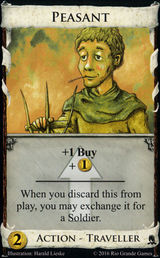
|
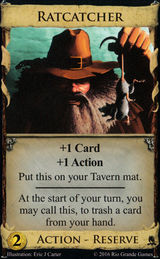
| ||||||||||||||||
| Amulet | Bridge Troll | Caravan Guard | Peasant | Ratcatcher | ||||||||||||||||
| Landscapes and Additional Cards | ||||||||||||||||||||
| Potion | Save | Trade | ||||||||||||||||||

|
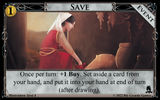
|
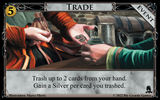
| ||||||||||||||||||
Alchemy & Empires
| Collectors [images] | ||||||||||||||||||||
|---|---|---|---|---|---|---|---|---|---|---|---|---|---|---|---|---|---|---|---|---|
| Apothecary | Apprentice | Herbalist | Transmute | University | ||||||||||||||||

|

|

|

|

| ||||||||||||||||
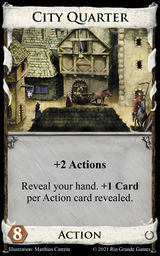
|
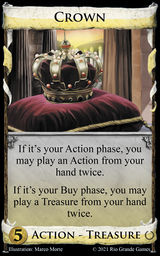
|
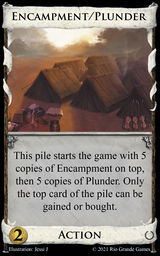
|
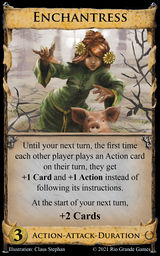
|
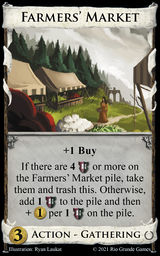
| ||||||||||||||||
| City Quarter | Crown | Encampment/Plunder | Enchantress | Farmers' Market | ||||||||||||||||
| Landscapes and Additional Cards | ||||||||||||||||||||
| Potion | Colonnade | Museum | ||||||||||||||||||

|
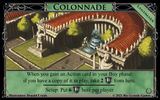
|
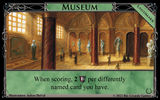
| ||||||||||||||||||
Alchemy & Nocturne
| Nightmare Fuel [images] | ||||||||||||||
|---|---|---|---|---|---|---|---|---|---|---|---|---|---|---|
| Alchemist | Apprentice | Transmute | Vineyard | Bard | ||||||||||

|

|

|

|
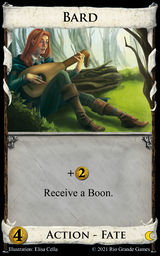
| ||||||||||
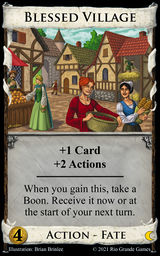
|
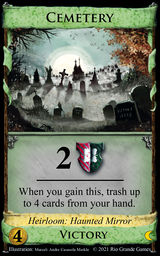
|
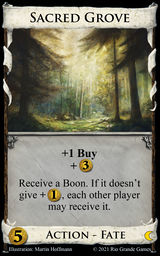
|
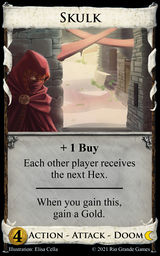
|
|||||||||||
| Blessed Village | Cemetery | Sacred Grove | Skulk | Tracker | ||||||||||
| Landscapes and Additional Cards | ||||||||||||||
| Potion | Boons | Hexes | ||||||||||||

|

|

| ||||||||||||
Alchemy & Renaissance
| Peek-a-boo [images] | |||||||||||||||||
|---|---|---|---|---|---|---|---|---|---|---|---|---|---|---|---|---|---|
| Alchemist | Apothecary | Golem | Scrying Pool | Cargo Ship | |||||||||||||

|

|

|

|
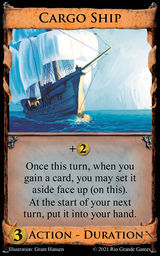
| |||||||||||||
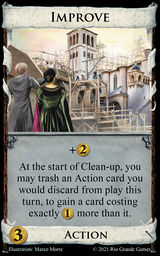
|
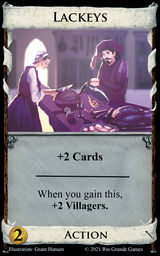
|
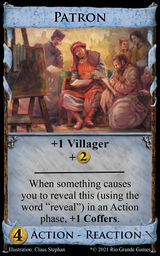
|
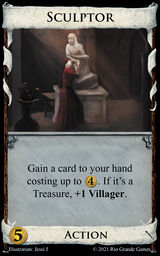
|
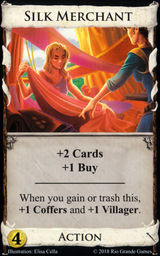
| |||||||||||||
| Improve | Lackeys | Patron | Sculptor | Silk Merchant | |||||||||||||
| Landscapes and Additional Cards | |||||||||||||||||
| Potion | Cathedral | ||||||||||||||||

|
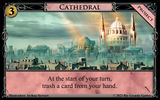
| ||||||||||||||||
Alchemy & Menagerie
| Class of '20 [images] | ||||||||||||||||||||
|---|---|---|---|---|---|---|---|---|---|---|---|---|---|---|---|---|---|---|---|---|
| Transmute | Vineyard | University | Cavalry | Coven | ||||||||||||||||

|

|

|
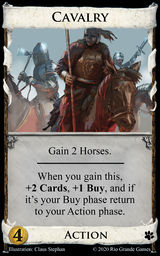
|
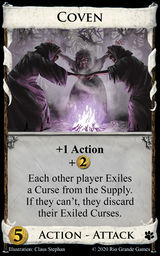
| ||||||||||||||||
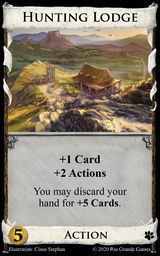
|
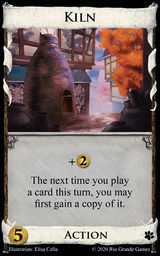
|
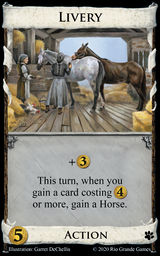
|
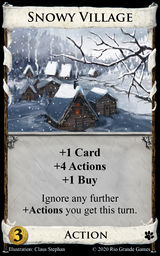
|
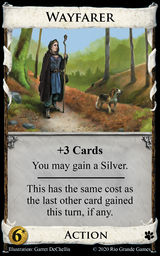
| ||||||||||||||||
| Hunting Lodge | Kiln | Livery | Snowy Village | Wayfarer | ||||||||||||||||
| Landscapes and Additional Cards | ||||||||||||||||||||
| Potion | Delay | Way of the Owl | ||||||||||||||||||

|
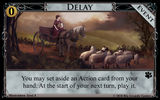
|
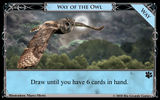
| ||||||||||||||||||
Alchemy & Allies
| Recursion [images] | |||||||||||||||||
|---|---|---|---|---|---|---|---|---|---|---|---|---|---|---|---|---|---|
| Alchemist | Apprentice | Golem | Scrying Pool | Barbarian | |||||||||||||

|

|

|

|
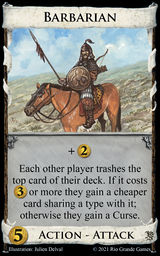
| |||||||||||||
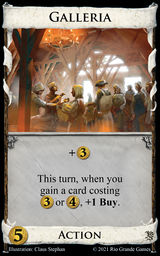
|
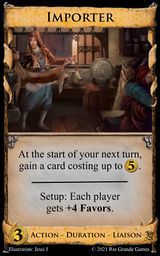
|
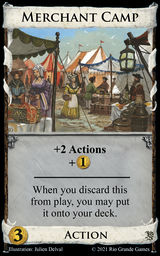
|
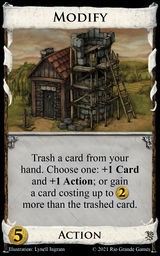
|
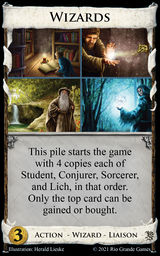
| |||||||||||||
| Galleria | Importer | Merchant Camp | Modify | Wizards | |||||||||||||
| Landscapes and Additional Cards | |||||||||||||||||
| Potion | Coastal Haven | ||||||||||||||||

|
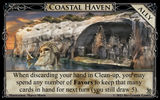
| ||||||||||||||||
Alchemy & Plunder
| Special Delivery [images] | ||||||||||||||||||||
|---|---|---|---|---|---|---|---|---|---|---|---|---|---|---|---|---|---|---|---|---|
| Alchemist | Apothecary | Golem | Transmute | Flagship | ||||||||||||||||

|

|

|

|
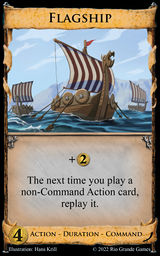
| ||||||||||||||||
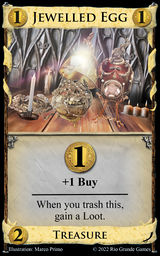
|
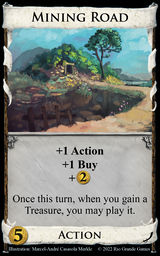
|
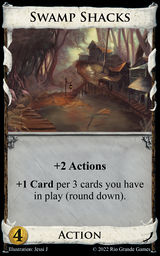
|
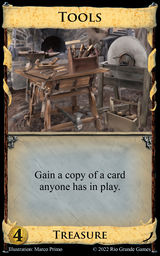
|
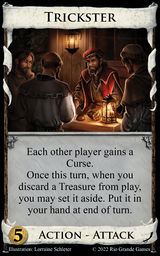
| ||||||||||||||||
| Jewelled Egg | Mining Road | Swamp Shacks | Tools | Trickster | ||||||||||||||||
| Landscapes and Additional Cards | ||||||||||||||||||||
| Trait for Golem Cursed |
Potion | Deliver | ||||||||||||||||||
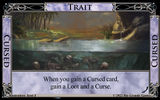
|

|
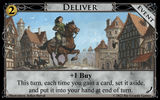
| ||||||||||||||||||
Alchemy & Rising Sun
| Fast Track [images] | ||||||||||||||||||||
|---|---|---|---|---|---|---|---|---|---|---|---|---|---|---|---|---|---|---|---|---|
| Alchemist | Golem | University | Vineyard | Fishmonger | ||||||||||||||||

|

|

|

|
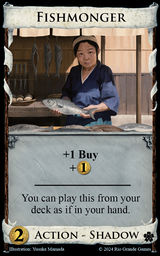
| ||||||||||||||||
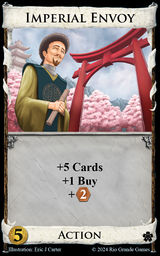
|
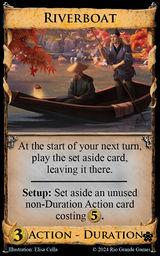
|
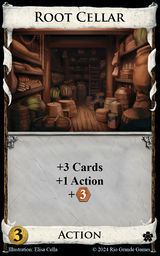
|
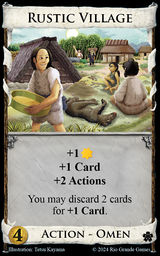
|
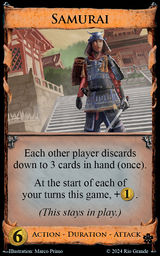
| ||||||||||||||||
| Imperial Envoy | Riverboat | Root Cellar | Rustic Village | Samurai | ||||||||||||||||
| Landscapes and Additional Cards | ||||||||||||||||||||
| Card for Riverboat Apprentice |
Potion | Progress | ||||||||||||||||||

|

|
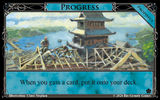
| ||||||||||||||||||
| Lazy Mischief [images] | ||||||||||||||||||||
|---|---|---|---|---|---|---|---|---|---|---|---|---|---|---|---|---|---|---|---|---|
| Apothecary | Familiar | Herbalist | Transmute | Alley | ||||||||||||||||

|

|

|

|
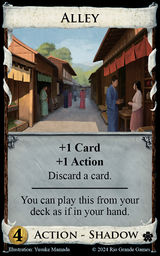
| ||||||||||||||||
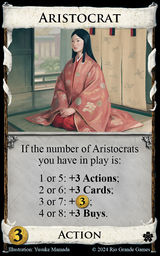
|
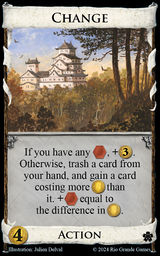
|
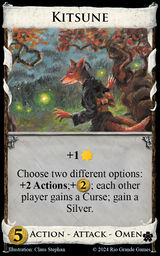
|
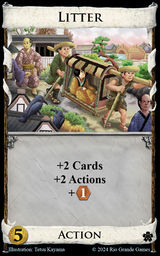
|
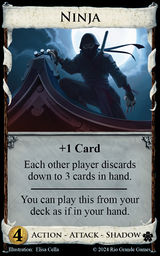
| ||||||||||||||||
| Aristocrat | Change | Kitsune | Litter | Ninja | ||||||||||||||||
| Landscapes and Additional Cards | ||||||||||||||||||||
| Potion | Receive Tribute | Biding Time | ||||||||||||||||||

|
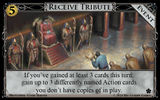
|
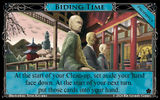
| ||||||||||||||||||
First Edition Kingdoms | |||||||||||||||||||||||||||||||||||||||||||||||||||||||||||||||||||||||||||||||||||||||||||||||||||||||||||||||||||||||||||||||||||||||||||||||||||||||||||||||||||||||||||||||||||||||||||||||||||||||||||||||||||||||||||||||||||||||||||||||||||||||||||||||||||||||||||||||||||||||||||||||||||||||||||||||||||||||||||||||||||||||||||||||||||||||||||||||||||||||||||||||||||||||||||||||||||||||||||||||||||||||||||||||||||||||||||||||||||||||||||||||||||||||||||||||||||||||||||||||||||||||||||||||||||||||||||||||||||||||||||||||||||||||||||||||||||||||||||||||||||||||||||||||||||||||||||||||||||||||||||||||||||||||||||||||||||||||||||||||||||||||||||||||||||||||||||||||||||||||||||||||||||||||||||||||||||||||||||||||||||||||||||||||||||||||||||||||||||||||||||||||||||||||||||||||||||||||||||||||||||||||||||||||||||||||||||||||||||||||||||||||||||||||||||||||||||||||||||||||||||||||||||||||||||||||||||||||||||||||||||||||||||||||||||||||||||||||||||||||||||||||||||||||||||||||||||||||||||||||
Alchemy & Dominion 1E
Dominion Second Edition Changes: out – Thief; in – Bandit
Dominion Second Edition Changes: out – Chancellor; in – Poacher
Dominion Second Edition Changes: out – Woodcutter; in – Vassal Alchemy & Intrigue 1E
Intrigue Second Edition Changes: out – Great Hall; in – Mill
This kingdom was unchanged between Intrigue 1E and 2E.
Intrigue Second Edition Changes: out – Coppersmith; in – Lurker Alchemy & Seaside 1E
This kingdom was completely removed in Seaside 2E.
Seaside Second Edition Changes: out – Ambassador, Sea Hag, Smugglers; in – Sailor, Sea Chart, Sea Witch Alchemy & Prosperity 1E
This kingdom was completely removed in Prosperity 2E.
Prosperity Second Edition Changes: out – Talisman, Vault; in – Anvil, Charlatan Alchemy & Cornucopia & Guilds 1E
Cornucopia & Guilds Second Edition Changes: out – Alchemist, Harvest, Horse Traders, Philosopher's Stone, Remake; in – Apothecary, Candlestick Maker, Carnival, Herald, Infirmary
This kingdom was completely removed in Cornucopia & Guilds 2E.
This kingdom was completely removed in Cornucopia & Guilds 2E.
This kingdom was completely removed in Cornucopia & Guilds 2E. Alchemy & Hinterlands 1E
This kingdom was completely removed in Hinterlands 2E.
Hinterlands Second Edition Changes: out – Crossroads, Haggler, Nomad Camp; in – Guard Dog, Margrave, Nomads | |||||||||||||||||||||||||||||||||||||||||||||||||||||||||||||||||||||||||||||||||||||||||||||||||||||||||||||||||||||||||||||||||||||||||||||||||||||||||||||||||||||||||||||||||||||||||||||||||||||||||||||||||||||||||||||||||||||||||||||||||||||||||||||||||||||||||||||||||||||||||||||||||||||||||||||||||||||||||||||||||||||||||||||||||||||||||||||||||||||||||||||||||||||||||||||||||||||||||||||||||||||||||||||||||||||||||||||||||||||||||||||||||||||||||||||||||||||||||||||||||||||||||||||||||||||||||||||||||||||||||||||||||||||||||||||||||||||||||||||||||||||||||||||||||||||||||||||||||||||||||||||||||||||||||||||||||||||||||||||||||||||||||||||||||||||||||||||||||||||||||||||||||||||||||||||||||||||||||||||||||||||||||||||||||||||||||||||||||||||||||||||||||||||||||||||||||||||||||||||||||||||||||||||||||||||||||||||||||||||||||||||||||||||||||||||||||||||||||||||||||||||||||||||||||||||||||||||||||||||||||||||||||||||||||||||||||||||||||||||||||||||||||||||||||||||||||||||||||||||||
